Description
“GLASS HOUSES IN JAPAN” is a masterpiece in the history of Billy Joel’s audience albums. The perfect content that coupled the best audiences in Tokyo and Osaka from the 1981 performance in Japan has become a huge bestseller as it is a perfect reminder of the nostalgic Japan fever, and it has been sold out for a long time. It is said that it was a meaningful title that led to the success of this album, which led to Billie performing in Japan. The masterpiece, which captures the best sound quality of the stage at the time when his popularity was at its peak and he was extremely popular in Japan, has been difficult to obtain for a long time, and there are constant calls for its re-release. did. The re-release, which has finally been realized, is not just a reissue, but a complete review of the sound source and release format. First of all, at the time, I preferred a multi-disc format that coupled multiple performances, but it was easier to obtain and listen to each performance if it was released separately, and above all, it was a performance in a different land. , each was re-released individually (if this was the same venue, it would have been released as a set). First of all, we will introduce the Budokan performance on April 17th, which was recorded on the first two discs of “GLASS HOUSES IN JAPAN”. Although the previous two performances in Japan had exploded in popularity, only two performances were held in either year, and in 1979, there were only two performances at Budokan, as if demand was high. The schedule was such that supply was not balanced (hence the competition for tickets was extremely fierce), but in 1981 the number of performances expanded to seven for the first time. This sound source is from the last day of the Budokan performance, which was held for three consecutive days. With the huge hits of the albums “THE STRANGER” and “52ND STREET,” Billy had already achieved the status of a major Western music artist in Japan. With the further success of “, he was elevated to the level where even people who are no longer music fans know his name and songs. It was a time when Billy was the constant source of music played on cassettes from car stereos. That’s why it was really amazing how heated up the venue was that day. The charm of this sound source is that it captures the realism that can only be achieved at the height of popularity so realistically. However, it is Japan in 1981. It was a time when the hurdles for English conversation were high, even with the help of Wicky. The yellow cheers flying around were all “Billy!” That’s why it’s great that even the most heartbreaking scenes are captured. First, during the setup before the performance of “Don’t Ask Me Why,” Billy was distracted by someone in the audience asking, “did you see that?”, and one girl said, “I don’t know what you’re saying!” he shouted, and the entire venue erupted into laughter. The timing of her statement was also perfect. Furthermore, after “Until The Night,” a man shouted “Shibui!” which caused the audience to burst into laughter. What an idyllic Showa era feeling! It was amazing to see everyone from Billy on down giving their best performances amidst such a peaceful excitement that it could even be described as “heartwarming”. After all, this is enough for two discs! Packed with all the big hit songs of the time, there’s no way it wouldn’t be exciting. Billy was still young at the time, so it was typical of him to hastily start playing the intro to his special song “Honesty” without any MC. The Japanese audience cheering every time a dazzling masterpiece starts, it’s too healthy. By this time, each band member was well known by the fans, and when saxophonist Richie Kanata, known as “Rico,” was introduced, there was a particularly loud cheer, which is a valuable scene that shows how popular he was at the time. Probably. Still, it was performed by the strongest members, and Billy sang with full power that you can’t believe it was performed three days in a row. The best audience recording that records the unmistakable sights of the “heyday” so clearly. Furthermore, on this day, Billy played a little bit of Wings’ “Let ’em In” as a “grasping” that he was good at on stage, but this was also typical of Japan, the Beatle country, and the audience at the moment was excited just by the beginning of the intro. is responding immediately. More than that, the Beatles’ “I’ll Cry Instead,” which was often played as an encore at this time in memory of John Lennon, who passed away six months ago, is also very exciting. And for this re-release, it has been newly remastered. However, since the original sound quality is that good, it is not a drastic difference, but it has evolved to be easier to listen to with a finish that brings out a warmer feel than the last time. When it was released in 2012, it was a superb recording that was described as “a record of when Western music was at its best,” and even today it still boasts exceptional clarity and high quality, as well as a sense of realism when listening to it. A fun and rare sound source. This is a masterpiece that should be enjoyed not only by Billy fans, but also as the best record of Western music concerts from the Showa era. Even if a sound board directly connected to the table appeared on the same day, it would be impossible to capture this realistic sense of presence. Such an immortal masterpiece sound source is now available! Live at Budokan, Tokyo, Japan 17th April 1981 TRULY PERFECT SOUND(from Original Masters) Disc 1 (42:47) 1. Intro. 2. You May Be Right 3. My Life 4. Honesty 5. Movin’ Out (Anthony’s Song ) 6. Piano Man *The woman’s “I don’t know!” after the performance is funny (Billy also imitates) 7. Don’t Ask Me Why 8. Vienna 9. The Stranger Disc 2 (61:44) 1. Stiletto 2. Until The Night 3. Let ‘Em In 4. Root Beer Rag 5. She’s Always A Woman 6. Just The Way You Are 7. Sleeping With A Television On 8. All For Leyna 9. Sometimes A Fantasy 10. Big Shot 11. It’s Still Rock And Roll To Me 12. I’ll Cry Instead 13. Band Introduction 14. Only The Good Die Young 15. Souvenir Billy Joel – Vocal & Piano Russell Jayors – Guitar David Brown – Guitar Richie Cannata – Horn & Saxophone Doug Stegmeyer – Bass Liberty Devitto – Drums
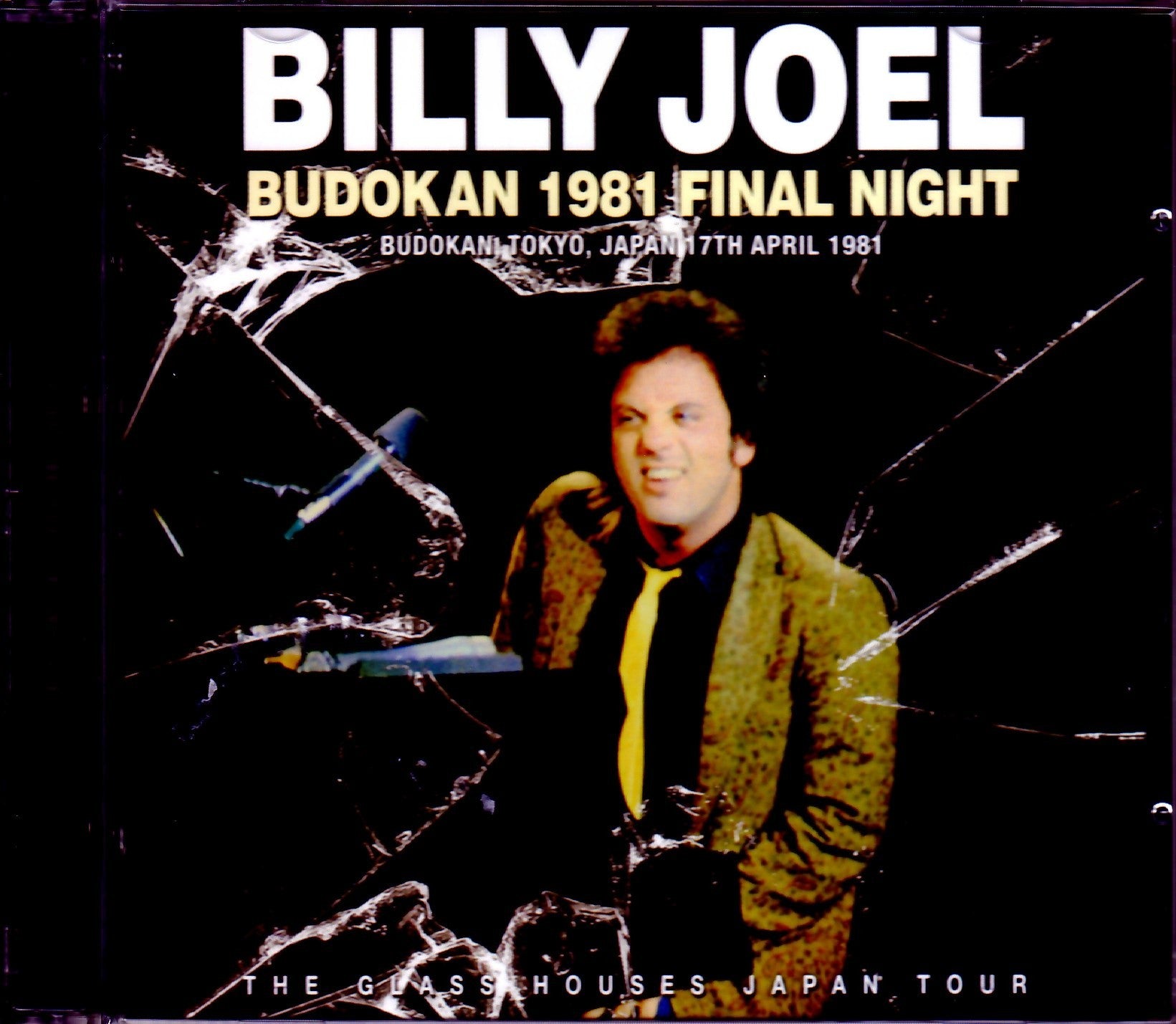
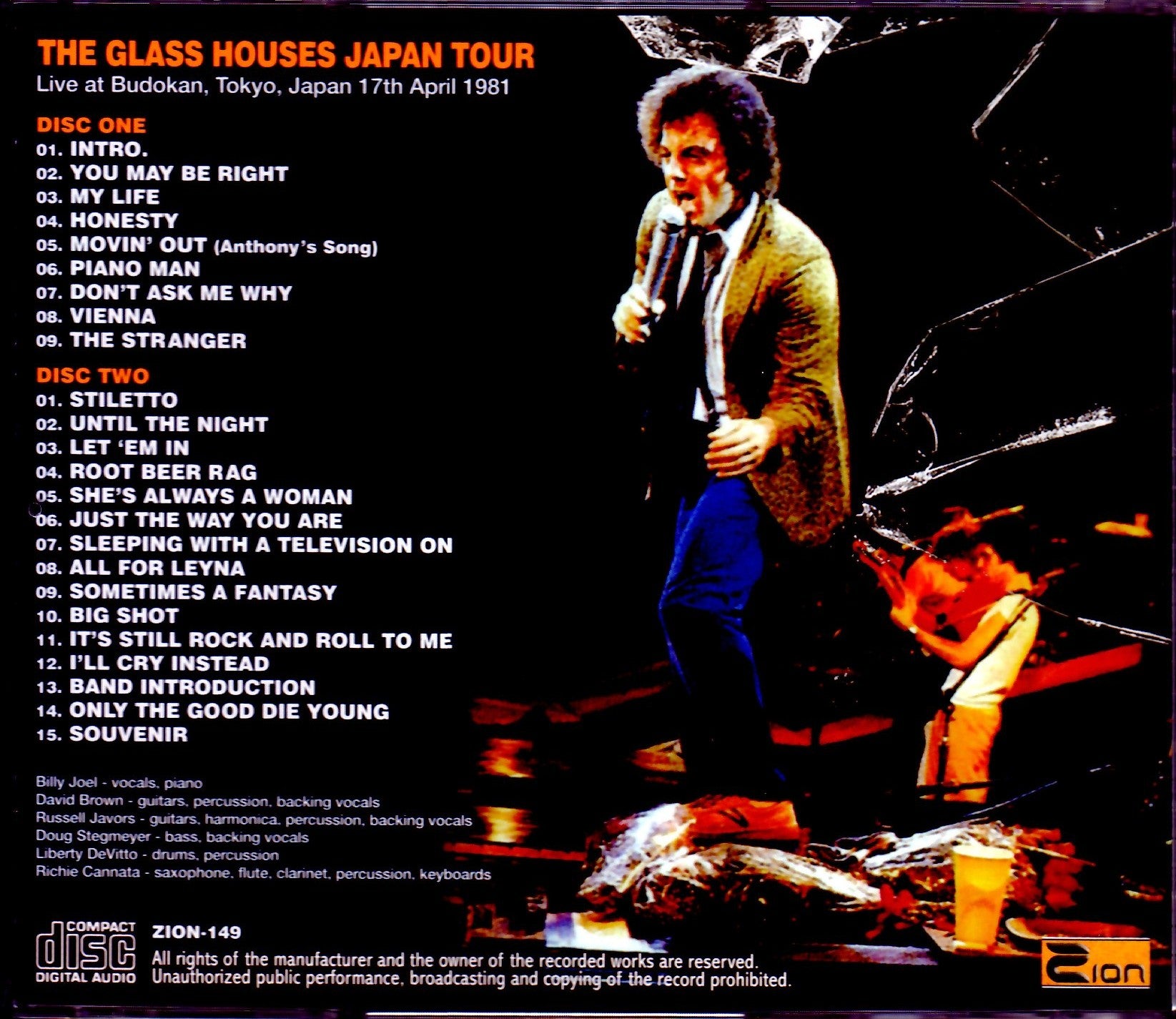

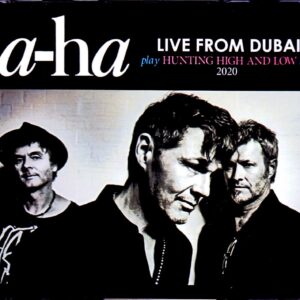
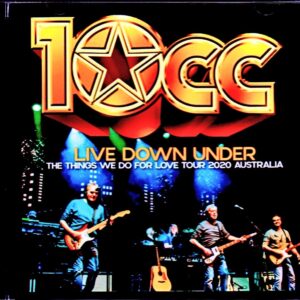
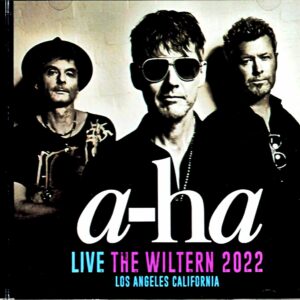
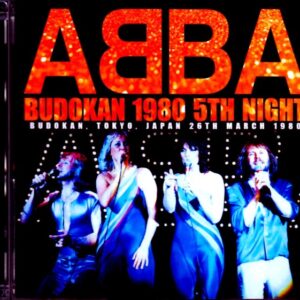
Reviews
There are no reviews yet.